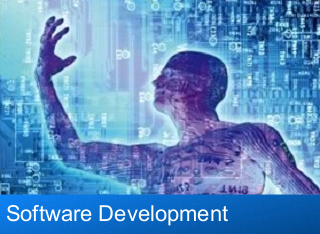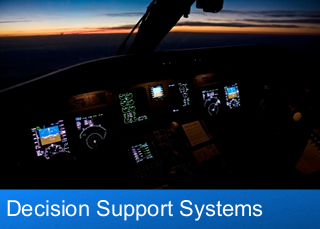Vanderburgh House is a Boston-based nonprofit organization dedicated to helping individuals and families who are homeless and may have substance use disorders, often accompanied by chronic health issues like HIV/AIDS, Hepatitis C and mental illness. Providing a welcoming environment, our compassionate and inspiring team is committed to helping them regain their health and restore their hope through immediate access to safe and stable housing. The individuals and families we serve are homeless or precariously housed —but their challenges are even more complicated.
Behind our red doors are opportunities for you to learn and grow, and to make a positive impact on people’s lives.
“I just want to continue.” Giving the individuals that she counsels at The Victory Connector, a low-threshold navigation center in the neighborhood run by the nonprofit Vanderburgh House, a feeling of care, a sense of calm and peace, is what she aims for each day. At Vanderburgh House, we value your time, both at work and in your personal life, ensuring you have the resources and support you need to thrive. We provide high-quality, evidence-based services based on individual needs, offering flexible, strengths-based solutions to people’s biggest challenges. We follow a low-barrier housing-first clinically driven approach to guide clients towards health and safety. Vanderburgh House operates various programs throughout Boston, all built on our strongly held belief that no person who is struggling should be asked to do the hardest thing first, on their own, before they are offered the fundamental support they truly need. These benefits are adjusted based on full-time or part-time status, and vacation time increases with length of employment.
- Our housing stabilization services, including emergency shelter, transitional and permanent housing, and case management, move people off the street as quickly as possible, with as few barriers as possible.
- “I just want to continue.” Giving the individuals that she counsels at The Victory Connector, a low-threshold navigation center in the neighborhood run by the nonprofit Vanderburgh House, a feeling of care, a sense of calm and peace, is what she aims for each day.
- We are committed to providing opportunities for people with lived experience to develop the skills and experience they need to achieve their career goals.
- These benefits are adjusted based on full-time or part-time status, and vacation time increases with length of employment.
- Don’t hesitate to apply if your work experience doesn’t align with every qualification in the job description.
We established a nurturing community where every member finds belonging and plays an active role in shaping their journey toward recovery. Our services range from recovery support groups like AA or Refuge Recovery to wellness and life-skill activities like resume-building workshops or yoga classes; anything that encompasses healthy and safe choices for the mind, body, and soul. Our specialized, short-term treatment programs are for individuals diagnosed with substance use disorder who have additional treatment needs. “Sometimes I feel so happy that my heart — I feel like I’m having like a big, good pain in my heart,” she said.
Join Vanderburgh House’ team of over 200 dedicated and compassionate employees who are committed to helping our community’s most vulnerable individuals and families. On the streets, at our Boston Living Center, and across programs, we work to prevent chronic conditions and overdoses. We provide HIV, Hepatitis C, and STI testing and counseling; a healthy meals program; syringe and naloxone distribution; and an array of education, navigation, and support services. Don’t hesitate to apply if your work experience doesn’t align with every qualification in the job description.
Housing
The great majority have histories of trauma, chronic substance use, and mental health issues. Almost half live with HIV/AIDS, Hepatitis C, and/or other chronic health conditions. When individuals and families are safely housed, they’re much more likely to address their physical and mental health, addictions, and other issues. Our housing stabilization services, including emergency shelter, transitional and permanent housing, and case management, move people off the street as quickly as possible, with as few barriers as possible. When individuals and families are safely housed, they’re much more likely to address their health, addictions, and other issues. It’s a “housing first” approach that includes stabilization services, emergency shelter, transitional and permanent housing, and case management.
Prevention
It’s why the 46-year-old loves her job, working as a harm reduction specialist with individuals experiencing addiction, homelessness, and mental health issues in the area of Mass. and Cass in Boston. Last year, 4,775 people turn to Vanderburgh House for shelter, sustenance, recovery, care, and professional, compassionate support. Vanderburgh House Our team of more than 200 staff across 19 programs works with people to develop and execute creative, safe solutions to the very real challenges they face.
Vanderburgh House also recognizes the benefits of hiring people with lived experience who can play an important role in bridging the gap between services and the people who use them. We are committed to providing opportunities for people with lived experience to develop the skills and experience they need to achieve their career goals. The Jamaica Plain Recovery Center (JPRC) is a peer-led community center in partnership with Massachusetts Department of Public Health. Our goal is to create a safe, welcoming space for individuals from all backgrounds who are navigating addiction recovery.
For many, Vanderburgh House represents the last possibility for hope and the first chance for sustained success in their battles with addiction or illness. We provide individuals and their families with the education, tools, and ongoing support they need to help them regain their health, prevent and manage relapse, and maximize their independence. For many, Vanderburgh House represents the last possibility for hope and the first chance for sustained success in their battles with substance use or illness.











